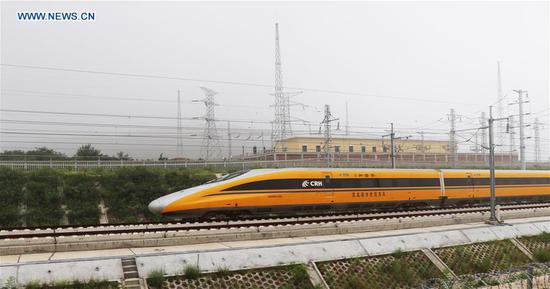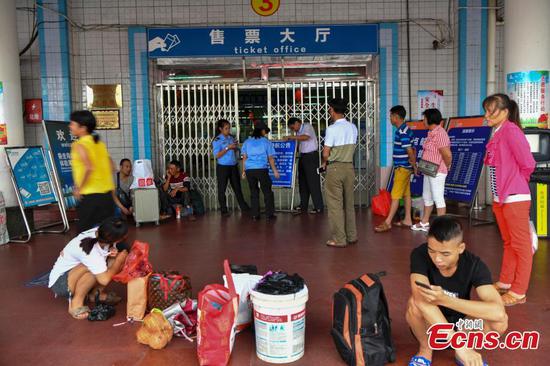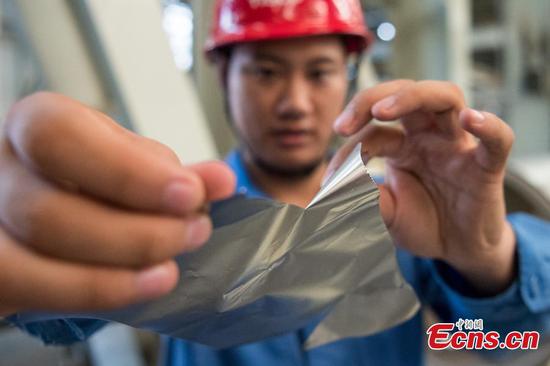
U.S. soybeans on the Peak Pegasus are offloaded at China's Dalian port on Sunday, Aug. 12, 2018. /CGTN Photo
Peak Pegasus, the U.S. cargo ship loaded with 70,000 tons of U.S. soybeans docked in the northeastern Chinese port city of Dalian at around midnight on Sunday, after circling off the Chinese coast for over a month
The ship was due to deliver its cargo on July 6, but missed the tariff deadline when China's 25 percent duties on U.S. soybeans in retaliation to Trump’s first round of tariffs on 34 billion U.S. dollars' worth of Chinese goods took effect.
Offloading those U.S. soybeans in China under the new tariff policies would add around six million U.S. dollars to the cost of bringing them into the country.
The ship started to offload at around 3 a.m., and the entire process is expected to last six days.
Chinese soybean purchaser Sinograin is expected to pay for that increased cost in taxes. And the firm also needs to pay additional fees to keep the vessel until the cargo gets fully unloaded.
According to Sinograin, the ship didn’t dock on time because of the limited warehouse capacity at the port.
“When our ship reached the port, there was congestion due to an increase in the number of soybean ships coming in. Our ship was unable to dock. We will pay off the tariffs according to new policies,” said Chen Xuecong, deputy general manager of Sinograin Oils Corporation.
Chen said companies tried to stock soybean imports from countries like Brazil and Argentina as soybeans from South American countries are now in season. And the move is seen to help ease shortage in the fourth quarter – a season usually dominated by U.S. soybeans.
"There's definitely pressure, but we are confident that we can deal with the pressure. In the past few months, we've seen an escalation of the trade war, started by the U.S.. To deal with that, we are actively adapting in terms of importing soybeans from regions other than the U.S.," Chen said.
Some 30 million tons of U.S. soybeans were expected to arrive in China this year, but Chinese buyers have been adjusting their orders after Beijing’s 25 percent additional tariff.
American soybean farmers will be hit hard with Chinese orders decreasing. Last year, China imported about 33 million tons of soybeans from the U.S., making up about 62 percent of all U.S. soybean exports annually.
The American Soybean Association (ASA) has expressed "extreme disappointment" in the U.S. move of imposing further tariffs on Chinese goods, which they believe will "needlessly hurt soybean growers and rural communities" in America.
The ASA once again called on the Trump administration to find a non-tariff solution to address its trade issue with China, such as utilizing soybeans as the largest agricultural export to help reduce the U.S. trade deficit with China.
U.S. soybean prices plunged on August 9 to more than 4.5 percent, marking the worst day since July lows.


















































